Graduate Program
Graduate Student Spotlight: Jessica Canning
 |
Jessica Canning (Adult Clinical Area with Mary Larimer) is our latest student to receive predoctoral funding from NIAAA (NRSA, or National Research Service Award) for her research on risk factors with heavy alcohol use. The background of this research award was covered in a previous article. Learn more about Jessica below!
Let's start with the basics, where are you from and where did you complete undergrad/masters?
I grew up in Phoenix, Arizona and completed my undergrad at Arizona State University.
How did you wind up at UW/why did you apply here? What do you think about living in Seattle?
I was first interested in UW because of my advisor, Mary Larimer, and her work. I decided to stay because of the laid back vibe and strong collaborative environment at UW. I really enjoyed the people I was hoping to work with, and our program is rich with opportunities I wasn’t going to get elsewhere. Seattle has been a wonderful. It’s so easy to escape into nature, and there’s so much to explore here.
What is your research interest and how did you get into it (what inspires/motivates you)?
I’m interested in risk factors for heavy alcohol use. I’m inspired by all the amazing mentors I’ve had who paved the way and really supported my research ideas. Seeing all the strong women coming up in academia within the addictions field has motivated me in my career choices greatly and influences my pursuit of an academic career.
How did you learn about your funding opportunity and tell us about the application/waiting process?
I first learned about NRSA Fellowships in undergrad and knew I would pursue one as a graduate student. Additionally, my lab has a seminar dedicated to grantsmanship that really gave me a jump start on the process. The application and waiting isn’t easy but it’s worth it. I would definitely say delayed gratification is a necessary skill in grant writing. Each step moves slower than you’d expect, so give yourself time and start early.
How did you feel when you learned that your application was accepted and that you will receive funding?
I couldn’t believe it to be honest. I was excited and awe-struck because this meant I finally get to do my own research. I immediately went out to celebrate by going to a fancy dinner.
What is the name of your project and the funding source?
My project is a National Research Service Award (NRSA) from NIAAA entitled, “Peer Groups and Broad Social Motives’ Influence on College Student Drinking: A Multimethod Approach Using Alcohol Administration and Daily Diary”
How might your research change the world?
My research will help inform the development of prevention for alcohol use among young adults. By understanding how peers influence drinking behavior, we can incorporate more social contextual information into brief interventions rather than only focusing on the individual.
Do you have any advice/tips/suggestions for others who may apply to this opportunity? About graduate study in general?
In addition to starting early, get lots of feedback. I was lucky enough to have some mock review sessions with faculty in my lab and it really helped the project along. I recommend requesting recently funded examples from students but don’t forget to double check the specific requirements in the current funding announcement because they change often.
What do you hope to accomplish with the funding and/or while in the UW Psychology graduate program?
I hope to receive the training needed to manage my own lab after graduate school. On this project I will be co-mentoring several undergraduate students and managing both experimental and survey research. This will set me up for my future career as an academic researcher.
What do you like doing in your spare time?
I love hanging out with my dog, Nala. We spend most of our afternoons at the park and exploring Seattle.
The last book and/or movie you saw and enjoyed?
Avengers: Endgame. “Avengers… assemble” – Steve Rogers
What do you plan to do once you complete your PhD?
I plan to go on to a post-doc and eventually a faculty research position at a large university or in a research medical setting. I hope to continue pursuing grants to fund my future research interests and teach students.
Supplemental Reading:
Highlights from the Diversity Steering Committee
This year the Diversity Steering Committee (DSC) pushed forward several new projects and initiatives. Here are two highlights.
Biannual Diversity Climate Survey data presented to faculty
During a faculty meeting this year DSC members (Linda Zou and Adriana Germano both from the Social Psychology and Personality Area with Sapna Cheryan) presented findings from the 2018 Biannual Diversity Climate Survey. Linda and Adriana shared results regarding students’ experiences within the department (positive and negative) relating to diversity as well as research-based solutions for improvement. We plan to continue this tradition with a launch of a third version of a new diversity climate survey in Spring 2020.
Diversity Science Speaker Series
This year the DSC launched a new Diversity Science Speaker Series. Our inaugural speaker was Dr. Valerie Purdie Greenaway. Dr. Purdie Greenaway presented the talk, What does it mean to build an inclusive environment for historically marginalized groups?, where she spoke on increasing diversity and inclusion for marginalized student groups. The talk was a huge hit! We plan to continue this speaker series in the upcoming years. Stay tuned for our next speaker!
New Leadership
We also sadly report that Adriana Germano’s time as a DSC co-chair is coming to an end this year. We continue to look forward to seeing what DSC can achieve under the continued leadership of Terrence Pope (Social Psychology and Personality Area with Sapna Cheryan) and our incoming graduate co-chair.
The DSC looks forward to supporting graduate students in exploring diversity science in their coursework, research, teaching, and other domains of engagement within and outside the UW. Please contact us at psychdsc@uw.edu for more information.
Supplemental Reading:
Graduate Accomplishments
Autumn 2018
At the close of Autumn 2018 quarter after our previous newsletter was published, we had three students complete an optional master’s degree: Natasha Gulati (Adult Clinical Area with Bill George), Miranda Johnson (Cognition and Perception Area with John Palmer), and Megan Ramaiya (Adult Clinical Area with Jane Simoni). We look forward to you continuing onto the Ph.D.!
Winter 2019
Adriana Germano (Social Psychology and Personality Area with Sapna Cheryan) received a travel grant for Early Winter 2019 from the Graduate & Professional Student Senate (GPSS) in order to attend the International Convention of Psychological Science in Paris, France in March to present her poster: Uncovering the costs and benefits to popular diversity programs across schools and workplaces.
Laina Keim (Child Clinical with Lynn Fainsilber Katz) received a Student Travel Award to attend the Society of Pediatric Psychology Annual Conference where she presented her poster entitled: Primary and secondary caregiver depression predicting observed family interaction following a cancer diagnosis: An exploration of the buffering hypothesis. The conference took place in New Orleans, Louisiana in April.
In Winter 2019 quarter, three students pass their general exam and advance to candidacy: Matthew Peverill (Child Clinical Area with Kate McLaughlin), Rosemary Meza (Child Clinical Area with Shannon Dorsey), and Peter Zambetti (Behavioral Neuroscience Area with Jeansok Kim).
We also awarded three masters degrees to: Jessica Burgeno (Cognition and Perception Area with Susan Joslyn), Katherine Manbeck (Adult Clinical Area with Jonathan Kanter), and Yingxue Rao (Behavioral Neuroscience Area with Sheri Mizumori).
In addition to completing her master’s in winter, Katherine Manbeck was selected as a trainee to join the Institute of Translational Health Sciences (ITHS) TL1 Translational Research Training Program this summer. She receives a year of research support and mentoring in the field of translational science. Her research project is called: “Is there a doctor in the house? Addressing racial health disparities with an evidence-based bias reduction intervention” More information on the training program can be found here.
Spring 2019
In our last issue, we included that Margarita Zeitlin (Cognition and Perception Area with Lee Osterhout) was nominated for the campus-wide Excellence in Teaching Award. We learned in March that she was selected as one of two recipients for this award. The honor is shared with a fellow graduate student in the Department of Chemistry (Jeffrey Paz Buenaflor) during an awards ceremony in June. Congratulations!
Two students completed their general exam and advanced to candidacy: Katherine Manbeck (Adult Clinical Area with Jonathan Kanter) and Bryan Schuessler (Behavioral Neuroscience Area with Jeansok Kim).
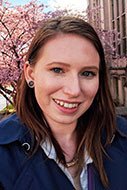 |
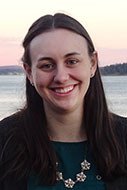 |
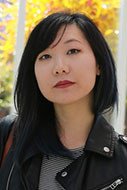 |
| Jessica Canning | Elizabeth Enright | Linda Zou |
Three students earned their master’s in spring quarter: Jessica Canning (Adult Clinical Area with Mary Larimer), Trent DesChamps (Child Clinical Area with Wendy Stone), and Thea Weiss (Developmental Area with Peter Kahn).
Jessica Canning also received an NRSA research fellowship. You can read her research spotlight here.
Megan Ramaiya (Adult Clinical Area with Jane Simoni) was selected for an American Psychological Association Minority Fellowship Program. We look forward to sharing her research spotlight in a future newsletter.
Our annual research festival is in its 47th year and was held at the Waterfront Activities Center (WAC) near Husky Stadium. It’s a full morning of research talks by our 1st year experimental students and 2nd year clinical students. After, we have lunch together and an awards ceremony recognizing members of our department.
Elizabeth Enright (Developmental Area with Kristina Olson & Jessica Sommerville) received awards for her many talents and contributions over the years. She received the Distinguished Teaching Award for Graduate Students, the Psychology Department Service Award, and the Graduate Student Service Award. Thank you for everything, Elizabeth!
Linda Zou (Social Psychology and Personality Area with Sapna Cheryan) was also selected to receive the Distinguished Teaching Award for Graduate Students. The graduate student TA award was presented by Ione Fine, who was then awarded as the 2019 Davida Teller Distinguished Mentor!
Jose Ceballos (Cognition and Perception Area with Chantel Prat) along with faculty Andrea Stocco and Chantal Prat (as co-authors), had a paper (The Role of Basal Ganglia Reinforcement Learning in Lexical Priming and Automatic Semantic Ambiguity Resolution) selected as one of two recipients of the Marr Prize by the Cognitive Science Society. This prize is given out annually to the best student-first-authored paper at the conference.
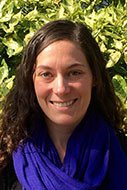 |
| Lizzie Neilson |
Lizzie Neilson (Adult Clinical Area with Bill George) received the College of Arts and Sciences Dean’s Graduate Medal. This award is given each year to the outstanding graduate student in each division of the College.
In spring, we had a few graduate students supported on special research awards. The Diversity & Equity Fellowship supports research projects that advance diversity and equity within Psychology and society. Our Spring 2019 Diversity & Equity Fellows were Krystal Parrish (Child Clinical Area with Lili Lengua) and Liying Wang (Adult Clinical Area with Jane Simoni). The Research Broadening Fellowship supports a student who seeks to acquire new skills and learn new techniques by training in another lab for a quarter. Our Research Broadening Fellow in Spring 2019 was Mariah Corey (Adult Clinical Area with Jonathan Kanter).
Kevin Kuehn (Adult Clinical Area with Kevin King) and Margarita Zeitlin (Cognition and Perception Area with Lee Osterhout) completed our Department’s Quantitative Minor, which is led by Brian Flaherty. We now have 26 students who completed this option which we created for our Psychology Ph.D. students who were seeking and completing more quantitative courses for their personal and professional development.
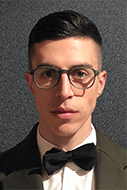 |
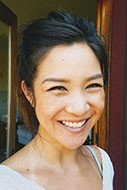 |
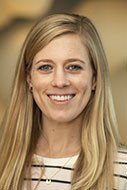 |
| Jose Ceballos | Karen Chang | Katy Fladeboe |
We had six students graduate from our program with their doctorates in Spring quarter: Jose Ceballos (Cognition and Perception Area with Chantel Prat), Karen Chang (Social Psychology and Personality Area with Yuichi Shoda), Katy Fladeboe (Developmental Area with Lynn Fainsilber Katz), Mi-Seon Kong (Behavioral Neuroscience Area with Jeansok Kim), Kit Moreland (Cognition and Perception Area with Geoff Boynton), Ashley Ruba (Developmental Area with Betty Repacholi), and Linda Zou (Social Psychology and Personality Area with Sapna Cheryan).
Ashley Ruba received a postdoc fellowship in the NIMH Training Program in Emotion Research at the University of Wisconsin – Madison, joining Seth Pollak's lab later this year. While Linda Zou just accepted an Assistant Professor position at the University of Maryland and Jose Ceballos will be joining Google.
Summer 2019
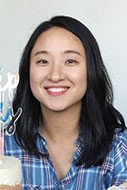 |
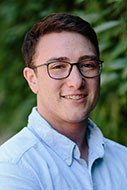 |
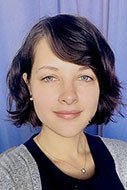 |
| Mi-Seon Kong | Kit Moreland | Ashley Ruba |
Tristram Savage-Pinte (Cognition and Perception Area with Ione Fine) has been awarded an Auditory Neuroscience Training Grant that begins this summer.
Margarita Zeitlin (Cognition and Perception Area with Lee Osterhout)’s research on language was written up in an issue of the UW Daily.
In Summer we have several students supported on endowments: the Earl "Buz" and Mary Lou Hunt Endowed Fellowship for Graduate Students in Psychology and the Alcor Endowed Scholarships (Harry and Claire Garlick Peterson). Elizabeth Enright (Developmental Area with Kristina Olson & Jessica Sommerville) and Prerna Martin (Child Clinical Area with Shannon Dorsey) were our Hunt fellows in Spring and Summer, respectively. Megan Ramaiya (Adult Clinical Area with Jane Simoni), Laina Keim (Child Clinical Area with Lynn Fainsilber Katz), and Adam Kuczynski (Adult Clinical Area with Jonathan Kanter) were our 2019 Alcor Fellows.
In addition to the summer endowments, the Psychology Department funds students on a Psychology Department Scholar award, for 2019 Adriana Germano (Social Psychology & Personality Area with Sapna Cheryan) and Pete Rosencrans (Adult Clinical Area with Lori Zoellner) were selected.
Rosie Walker (Adult Clinical Area with Lori Zoellner) was selected for a Graduate School Presidential Dissertation Fellowship. It provides one quarter of funding, including tuition waivers and health insurance.
We are in the middle of the quarter at the time of our summer 2019 newsletter publishing. Be sure to come back in Winter 2020, to catch up with us and see who has graduated as well as for more accomplishments from our talented graduate students. Have a great summer!